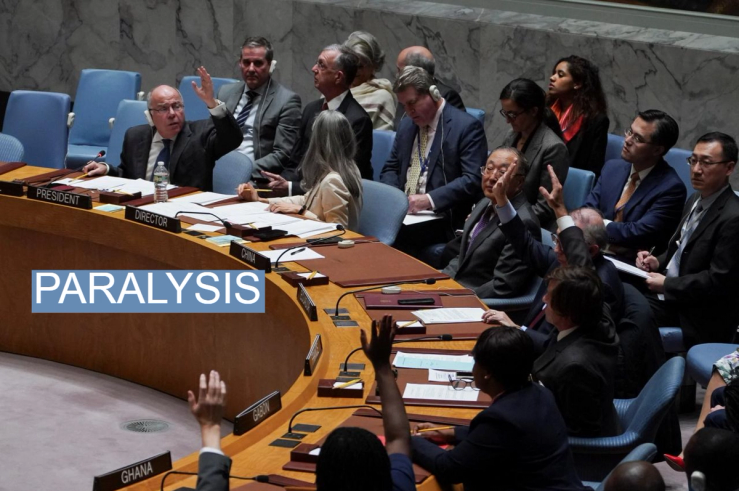The News
The United Nations Secretary General Antonio Guterres said Monday that Gaza has become a “graveyard for children” as the reported death toll from the month-long war exceeded 10,000, according to Palestinian health officials. His remarks came as 18 of the UN’s top officials signed a joint letter calling for an “immediate humanitarian ceasefire,” saying “enough is enough.”
Since the start of the war on Oct. 7, the UN has issued near-daily statements outlining the atrocities unfolding in Gaza, and urging for an immediate cessation of hostilities between Israel and Hamas. On a webpage devoted to the ongoing conflict, the UN writes that it has been “actively involved in seeking a peaceful resolution” between Israelis and Palestinians.
But does the UN play a consequential role in the crisis and what tangible impact do these statements have on deescalating the conflict?
SIGNALS
Statements from top UN officials and bodies like General Assembly have the ability to generate diplomatic pressure, Ryan Goodman, an international human rights professor at New York University, told Semafor. The UN can “build or erode international support for different ways to resolve the conflict,” he added. The UN Security Council is the only body with clear “enforcement authority” but the U.S. — which has rebuffed calls for a ceasefire — can exercise its veto power as one of five permanent members of the council. However, the council itself is in “disarray” Politico reports, citing growing tensions among members and staffers within the agency. “The drama revives the question of whether the United Nations is a useful forum for solving problems or just one to air grievances,” writes senior foreign affairs correspondent Nahal Toosi. The 15-member body has made four failed efforts to reach a consensus on a Gaza peace resolution, with one initiated by Russia receiving too few votes and a U.S.-led resolution being vetoed by China and Russia.
“If the Security Council doesn’t make major changes to overcome its paralysis, it risks fading into obsolescence,” Atlantic Council managing editor Uri Friedman wrote in 2022, as the war in Ukraine raged on. Not only has the council failed to resolve the Ukrainian crisis, Friedman argued, even issues addressing topics like climate change have been vetoed because of individual security concerns. While direct structural changes to reform the permanent members’ veto power will likely never gain traction, one more tangible proposal is rewriting the UN charter to allow for a supermajority in the UN General Assembly to override a veto, a move that would more equally distribute global political interests. Dramatic changes to international order usually come from wars involving world powers, and the increasingly polarized worldviews prove that “today’s confluence of challenges presents an urgent impetus for change short of world war,” Friedman opined.
A top UN official in New York resigned from the body in October with a strongly-worded letter citing its failures to prevent genocides of groups in Rwanda, Bosnia, and Myanmar, and saying that the agency was once again “powerless” in Palestine. Craig Mokhiber, a prominent UN official since 1992, wrote that the mantra of a two-state solution has become “an open joke in the corridors of the United Nations” and controversially proposed that the solution would be the establishment of a secular state that upholds Jews, Muslims, and Christians equally under the rule of law. He said that “the UN’s failure in Palestine thus far is not a reason for us to withdraw,” but urged the body to remain “steadfast” in the face of western powers fighting against such a solution.


